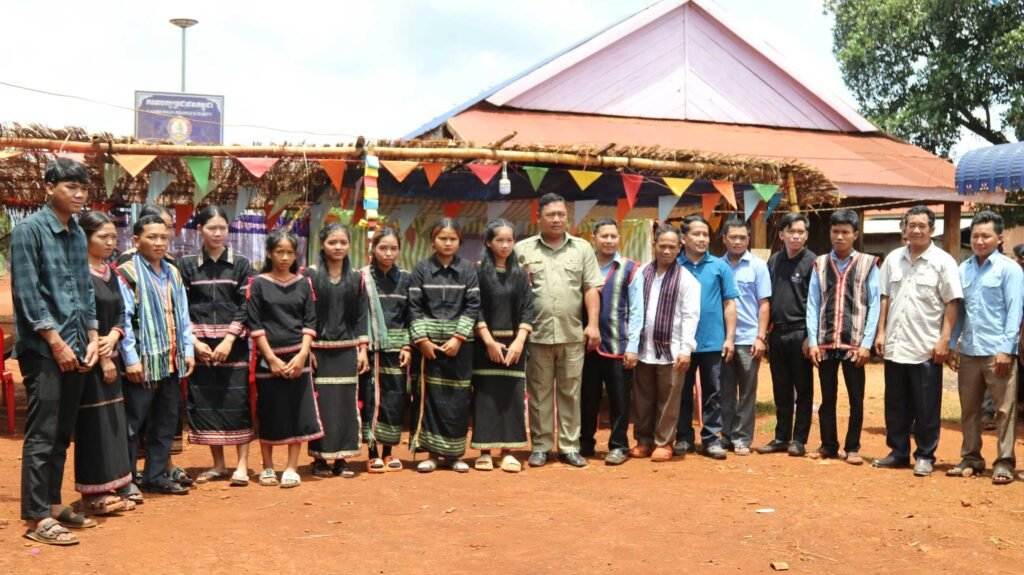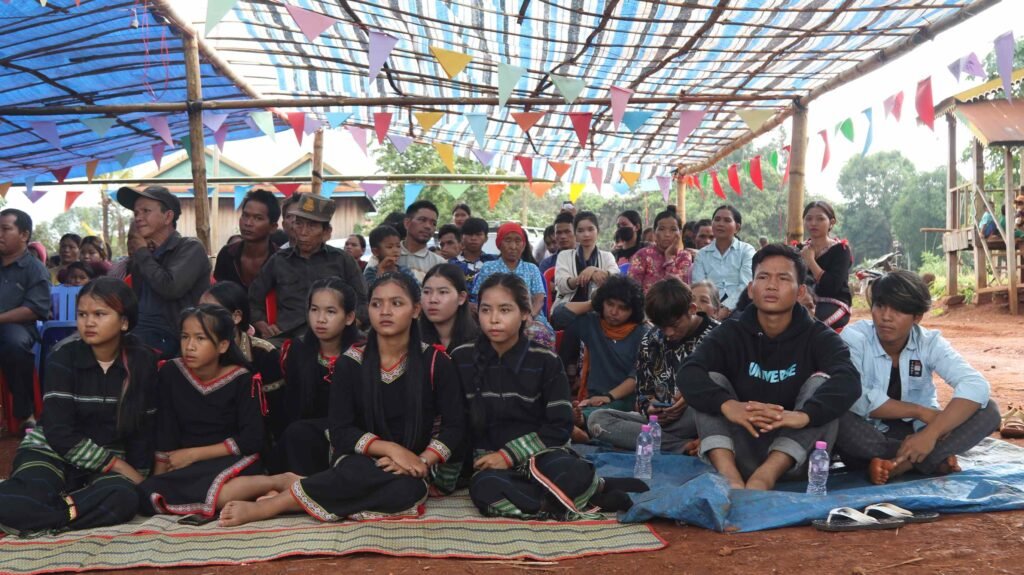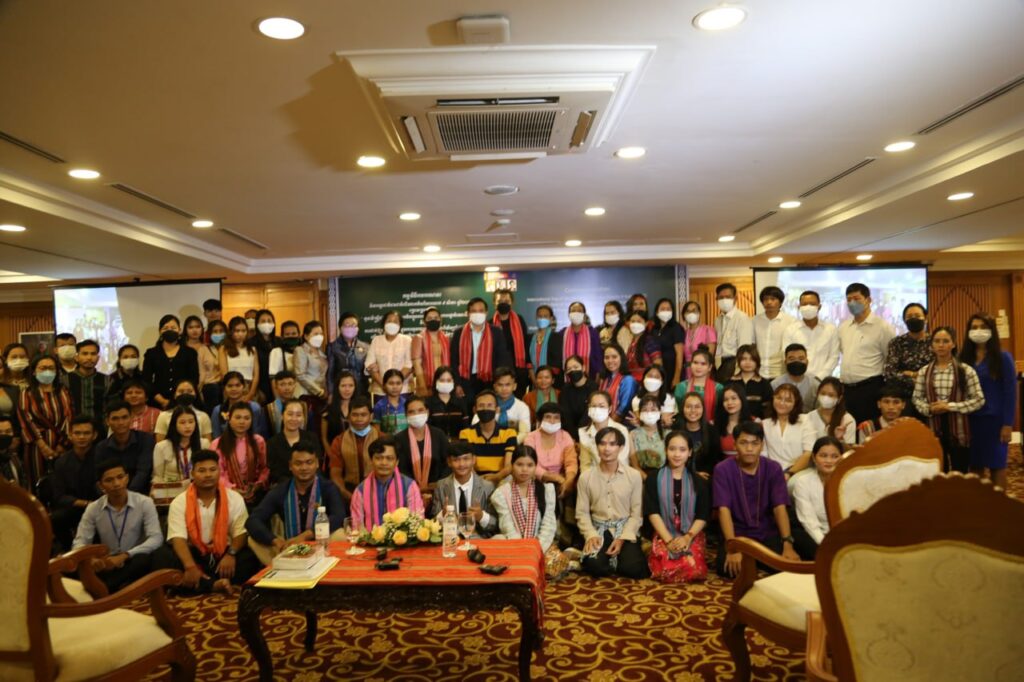884
The United Nations marks 2022 as this year’s International Day of the World’s Indigenous Peoples under the theme “The Role of Indigenous Women in the Preservation and Transmission of Traditional Knowledge.” This theme recognizes how important and central women are in the longevity and survival of indigenous communities. Indigenous people living in Cambodia are 250,000 to 400,000 (51% of women), accounting for 2-3% of the Cambodian population. More than 155 indigenous communities have received official recognition from the Ministry of Rural Development (MRD).
On 09 August 2022, Cambodia Indigenous Peoples Alliance (CIPA), Cambodia Indigenous Women Association (CIWA), Cambodia Indigenous Youth Association (CIYA), Cambodia Indigenous Peoples Organization (CIPO), Highlanders Association Ratanakiri, Converse Indigenous Peoples Languages Organization (CIPL), Organization for the Promotion of Kui Culture (OPKC), Indigenous People for Agriculture Development in Cambodia (IADC), Indigenous Rights Active Members (IRAM), and MIPN, in collaborating with Klahaan, Women Peace Makers, Asia Indigenous Peoples Pact (AIPP), and Open Development Cambodia (ODC) with the supports from United Nations Human Rights, VOICE, Diakonia, USAID, and FHI 360 celebrated the 18th International Day of the World’s Indigenous People in Cambodia. A total of 138 participants (approximately 90 females) joined the event.
The indigenous groups opened the celebration with the indigenous traditional prayer as well as displayed their traditional materials, clothing, and vegetables. The celebration also included a traditional Kui dance and singing. This event was not only commemorating the International Day of the World’s Indigenous Peoples but also exhibiting indigenous peoples\' culture and beliefs.
Role of indigenous women in the preservation and transmission of traditional knowledge
In terms of culture and tradition, indigenous people have a strong relationship with natural resources, and women have knowledge of the land and natural resource conservation. The community offers their prayers to the woodland, forest, and mountain spirits. Women in the field must pass on the knowledge to the next generation to continue recognizing and protecting the forest. There must be a forest in the village, and it should be maintained to ensure food security as well as spiritual beliefs. Indigenous people teach the next generation about how the importance of forests. Currently, the livelihood of the indigenous people is not the same as before. If young indigenous people don’t involve with the elders, their land, forest, culture, livelihood, and language will be in a greater lost from generation to generation. The indigenous people’s agriculture is not destroying the forest as some say indigenous people cut the forest for agriculture. The forest loss is not the indigenous people’s fault; it is because of the development project that cleared the land. The community has been doing agriculture for many years before, but there is not any great forest loss.
Challenges of indigenous women on the land and forest protection
The indigenous people show their enthusiasm for protecting their land and forestry. They think that this is their obligation to protect the forest for their lives and their generation, who they love from the bottom of their heart. It is not only for the indigenous people but also for all Cambodian people. The front line of land and forest protectors are mostly women because most of the men only do their specific work. Although there are NGOs, CBOs, indigenous communities, etc., that support them, indigenous women still face several difficulties and problems. The family somehow does not encourage or support them to involve in those activities due to unexpected encounters with the company and government, which could harm them or the whole family. When there is a land dispute with the company, the communities might be hurt and get involved in the trial. The indigenous people claim that they receive injustice solutions or decisions from the court. For example, they could get into prison because they do the farming on their own land, where the land has been given to the company without their agreement. The local authorities do not act or find solutions for them, and they just keep silent. Therefore, the community has no choice. They could only pray to the spirits.
Joints statement of the Cambodia Indigenous Peoples Alliance (CIPA)
Women have an important role in indigenous societies, leading, managing, and protecting collective cultural identities, traditions, land, and natural resources for indigenous groups and communities. Indigenous women who take the lead in land and natural resource protection are frequently subjected to social threats, discrimination, and unfair legal application, which can result in lawsuits, imprisonment, family separation, poverty, a lack of personal security, and legal restrictions or prohibitions on land rights. CIPA, as the representative of all indigenous communities, calls on all indigenous women to continue their efforts to strengthen their capacity, network, and voice in all trends and mechanisms to ensure their full participation, leading, preserving, transferring traditional knowledge, and sustaining indigenous peoples\' development in accordance with the UN Declaration on the Rights of Indigenous Peoples. CIPA also seeks direct help and support from national and international organizations, governments, and courts for indigenous women. Simultaneously, indigenous peoples press the Ministry of Justice and judges to strengthen law enforcement and acknowledge legal rights that protect indigenous peoples\' rights to ensure that they, as victims, receive a fair trial.


